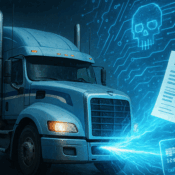
9 December 2024
Lithium-Ion Batteries: The Risks to Your Business Explained
Lithium-ion (Li-ion) batteries have become essential for businesses across various sectors, powering everything from portable electronics to electric vehicles and industrial equipment. Their efficiency, energy density and adaptability are driving innovation, but their widespread adoption also introduces risks and vulnerabilities to every business, big or small.
Let’s explore these challenges, particularly in operational, geopolitical and compliance contexts, and examine how your business can mitigate these risks through effective risk management and the right insurance programme.
-
The most significant risks of Lithium-ion batteries
Thermal runaway and fire hazards
The most well-known risk associated with Li-ion batteries is thermal runaway - a chain reaction caused by overheating, leading to fires or explosions. This can result from manufacturing defects, overcharging, physical damage or improper storage of batteries, and these incidents not only pose safety risks but also threaten operations and infrastructure.Overlooked risks
- Counterfeit or substandard batteries
- End-of-life management
- Transportation risks
-
Vulnerabilities of Li-ion use in businesses
Operational vulnerabilities
- Dependence on Li-ion supply chains
- Downtime risks
Geopolitical competition
- Resource scarcity
- Technological rivalry
Regulatory compliance
- Stringent standards
- Regional variations
-
Insurance implications and risk management strategies
Insurance risk implications
Li-ion batteries present unique insurance challenges:- Property damage
- Liability risks
- Business interruption
Risk management and compliance strategies
What a business can do:- Comprehensive risk assessments
- Improved safety protocols
- Supplier audits
- End-of-life management
- Insurance tailored to Li-ion risks
- Stay ahead of regulations
Other blogs which may be of interest:
Lithium ion batteries - Growing fire risk in 2024 How to protect against fire from lithium batteriesThe role of tailored insurance coverage and proactive compliance cannot be overstated in safeguarding operations and ensuring resilience for your business.
Do you need expert advice on managing Lithium-ion battery risks or insurance solutions? Contact us today to explore how we can help protect your business on 01245 449060 or email info@ascendbroking.co.uk.
Recent Posts
Ascend Broking
ASCEND BROKING GROUP LAUNCHES ASCEND RISK
Ascend Broking






